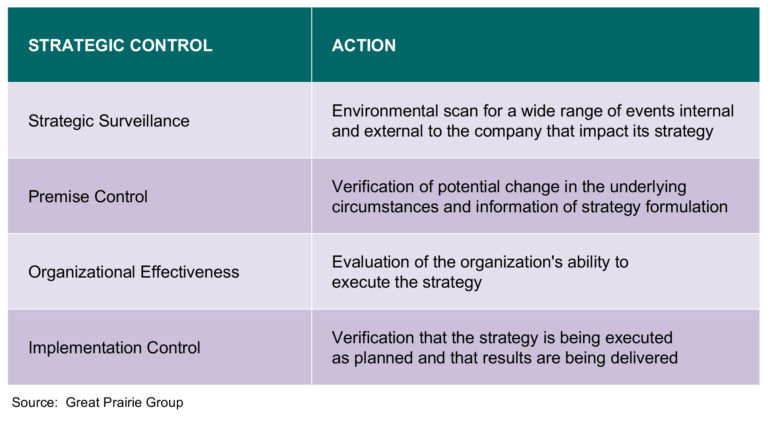Strategic controls are the processes used to manage the execution of company strategy. They serve to course-correct against obstacles and steer the company in the desired direction toward achieving future goals.
Strategic controls are fundamental in managing the complexity of executing strategy, including navigating changing market conditions, dealing with unexpected hurdles, pinpointing their origin, unravel cause and effect, and steering efforts in the desired direction.
Common management concerns in strategy execution include the following:
- Why is the execution effort not showing up in results?
- Is the organization working for or against execution?
- Are we using the right approach?
- Do we have the right indicators in place?
- Where / what is the issue?
- By the time we catch up, will the ground have shifted from under our feet?
- Is the original strategy still valid?
- Do we need to revisit our assumptions?
- How frequently?
Strategic controls go a long way to mitigate these concerns.





